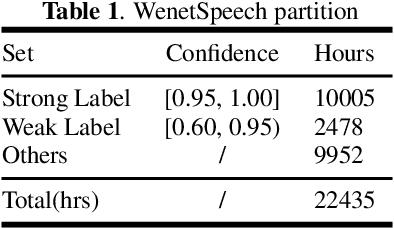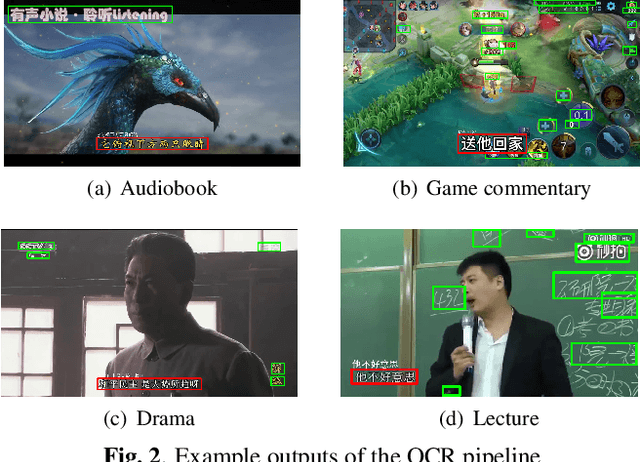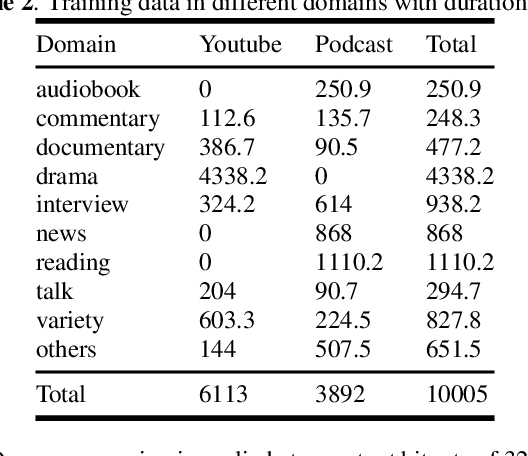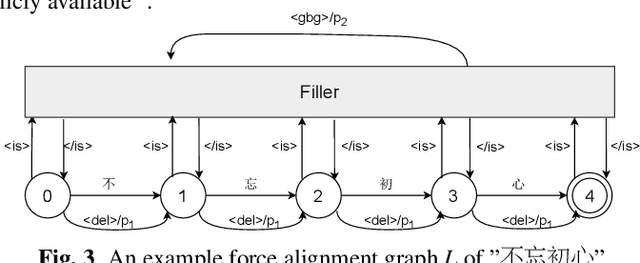WenetSpeech: A 10000+ Hours Multi-domain Mandarin Corpus for Speech Recognition
Paper and Code
Oct 18, 2021



In this paper, we present WenetSpeech, a multi-domain Mandarin corpus consisting of 10000+ hours high-quality labeled speech, 2400+ hours weakly labeled speech, and about 10000 hours unlabeled speech, with 22400+ hours in total. We collect the data from YouTube and Podcast, which covers a variety of speaking styles, scenarios, domains, topics, and noisy conditions. An optical character recognition (OCR) based method is introduced to generate the audio/text segmentation candidates for the YouTube data on its corresponding video captions, while a high-quality ASR transcription system is used to generate audio/text pair candidates for the Podcast data. Then we propose a novel end-to-end label error detection approach to further validate and filter the candidates. We also provide three manually labelled high-quality test sets along with WenetSpeech for evaluation -- Dev for cross-validation purpose in training, Test_Net, collected from Internet for matched test, and Test\_Meeting, recorded from real meetings for more challenging mismatched test. Baseline systems trained with WenetSpeech are provided for three popular speech recognition toolkits, namely Kaldi, ESPnet, and WeNet, and recognition results on the three test sets are also provided as benchmarks. To the best of our knowledge, WenetSpeech is the current largest open-sourced Mandarin speech corpus with transcriptions, which benefits research on production-level speech recognition.
 Add to Chrome
Add to Chrome Add to Firefox
Add to Firefox Add to Edge
Add to Edge